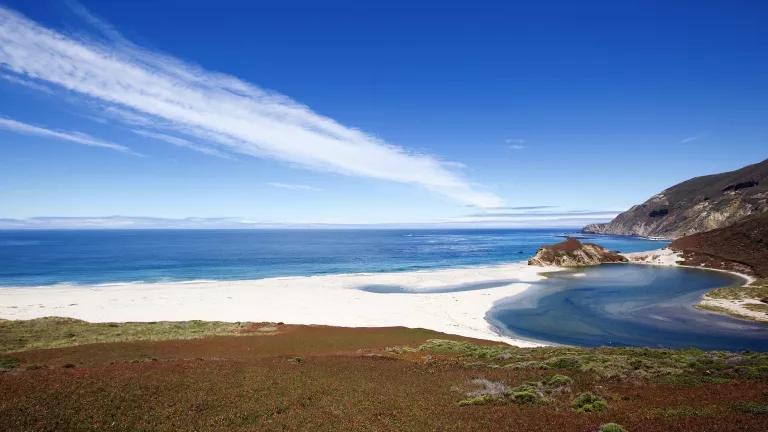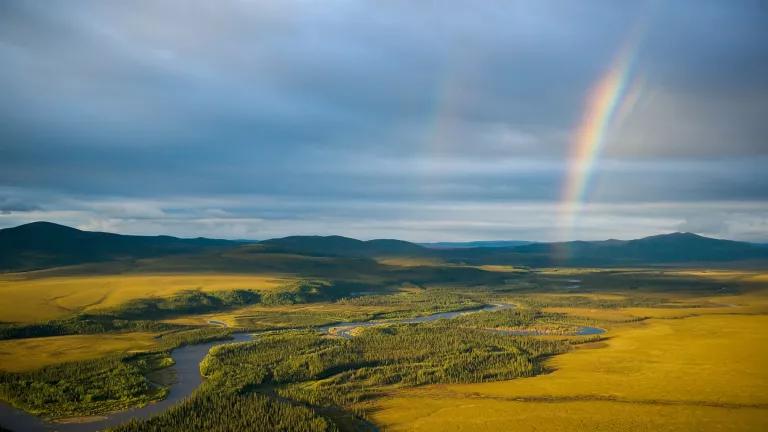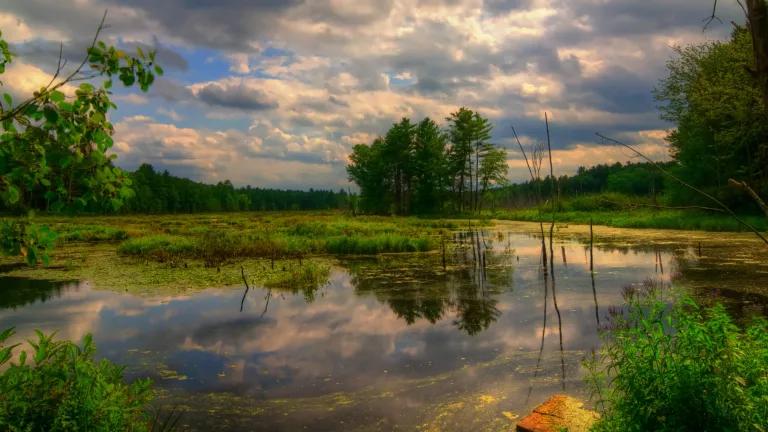A Victory for Our Oceans

President Obama’s latest move will keep most of the Arctic and a good chunk of the Atlantic off-limits to the oil and gas industry—for good.
Oceans are life, not only for the vast array of marine species that inhabit their deep waters and coasts but also for all of us. We depend on healthy oceans for food, a habitable climate, and the natural replenishment of the earth.
That’s why we all scored a historic victory on Tuesday, when President Obama set aside most of the Arctic Ocean and millions of acres in the Atlantic, making them off-limits—permanently—to the danger and destruction of oil and gas drilling.
Our oceans and the irreplaceable life they support are under siege from growing volumes of plastics and other pollutants; overfishing; a sonic invasion from commercial shipping and naval fleets; acidification from carbon pollution; and warming temperatures from climate change.
As we’ve seen all too often, oil spills at sea can be catastrophic. By protecting these waters from the added risks of oil and gas development, Obama is helping to build resilience against the greater assault on our oceans.
In the Atlantic, the move protects a chain of deep canyons stretching from New England to the Chesapeake Bay. This is special habitat for marine life—from deepwater corals, sponges, and crabs to majestic bluefin tuna, swordfish, marlin, and sharks—and it’s a refuge for endangered species like sperm whales and Kemp’s ridley sea turtles.

In protecting most of the Arctic, Obama joined forces with Canadian prime minister Justin Trudeau, who announced similar protections for our neighbor’s Arctic waters.
One of the last truly wild places on earth, the Arctic Ocean is vital to a rich and diverse array of marine life, including salmon, pollack, and 96 other species of fish, as well as bowhead, beluga, and gray whales. The region is home to some of the world’s largest populations of walruses, seals, and polar bears. And it supports eiders, long-tailed duck, geese, and shorebirds.
An oil spill in Arctic waters would be nearly impossible to contain or clean up, and the damage could range more than thousands of square miles.
In protecting these great American resources, Obama acted in the best tradition of American stewardship, reaching back more than a century to the presidency of Theodore Roosevelt. Perhaps our greatest conservationist, Roosevelt, a Republican, stood up to industrial interests and their Washington lobbyists to lay the foundations and set the standard for protecting special American places for future generations.
Our federal waters, after all, are a public trust, held by all of us in the public interest. It’s in the public interest to protect our oceans, marine life, coastal communities, and all they support from the risk of a BP-style blowout. It’s in our interest to reduce our reliance on oil and gas, not lock future generations into decades of more hazard and harm. And it’s in our interest to protect our children from the growing dangers of climate change by shifting away from dirty fossil fuels and toward cleaner, smarter ways to power our future.
As expected, the dirty fuel industry howled. But let’s be clear: These waters aren’t currently producing much oil—less than one-tenth of 1 percent of U.S. offshore production. The industry is eyeing these waters for production 30 years from now, on the hope that we’ll be as dependent on oil in 2046 as we are today.

That isn’t going to happen. As the world agreed to last December in Paris, we’re shifting away from the dirty and dying fossil fuels that are driving global climate change. We don’t need this oil—not now, not ever—and we can’t afford to burn it without betraying our children and consigning them to a climate catastrophe.
We need, instead, to invest in efficiency so we do more with less waste; build the next generation of energy-efficient cars, homes, and workplaces; and get more clean power from the wind and sun. That’s exactly what we’re doing—with the help of more than 2.5 million Americans who get up every day and go to work doing exactly that.
None of this, of course, has kept the oil and gas industry from calling on President-elect Donald Trump to walk away from these protections. Indeed, Trump has called for exposing more of our federal waters to the hazard and harm of offshore drilling, and he’s chosen a handful of fossil-fuel chieftains and allies for his cabinet.
Trying to un-protect these waters would be a waste of time and taxpayer resources. In safeguarding our oceans, Obama exercised the same executive authority used by four other presidents, going back to Dwight D. Eisenhower, who wisely set aside waters off the Florida Keys.
Since then, presidents from both parties have used this authority to protect waters off the coast of California, Massachusetts, and the Pacific Northwest. Congress gave presidents this authority—by law. It did not give future presidents the power to undo what previous leaders have done: In the long decades since, none has tried, and for good reason.
If Trump wants to put fossil-fuel profits ahead of the public interest, we expect the courts will respect the history on this and the rule of law—for the good of our future, for the good of us all.



